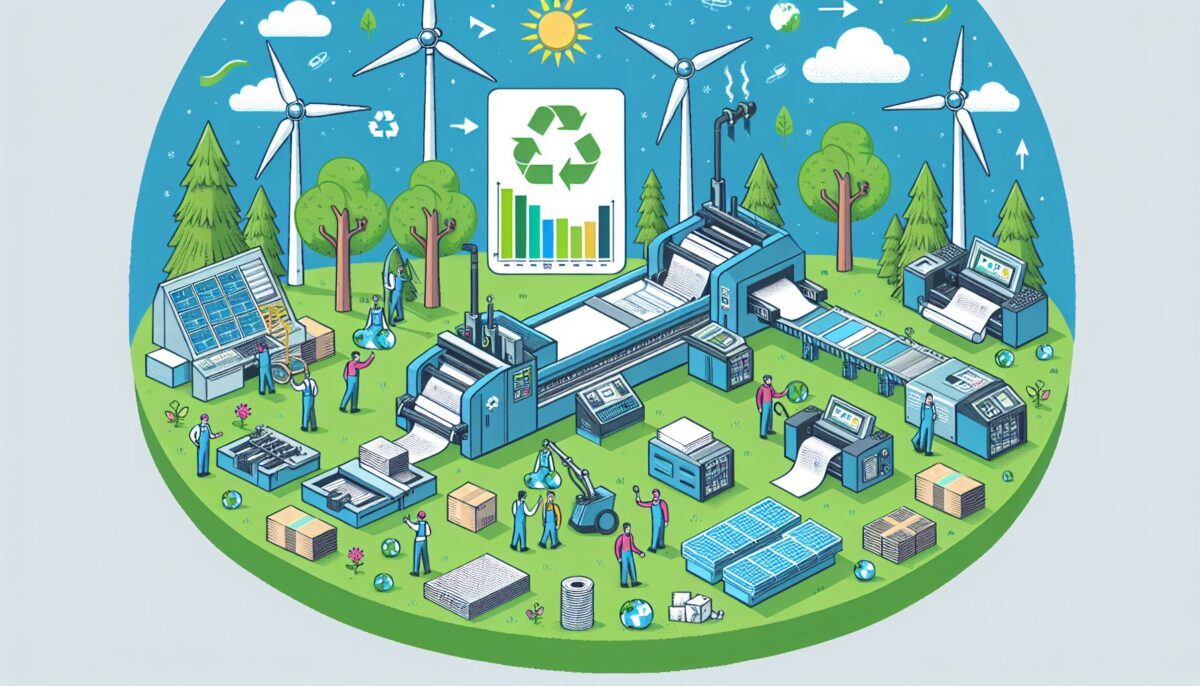In today’s fast-paced world, the issue of sustainability has become more important than ever. With increasing concerns about climate change, deforestation, and waste management, businesses and individuals alike are being urged to take action to reduce their environmental impact. One industry that has a significant impact on the environment is the printing industry. From the paper used to the chemicals and energy consumed in the printing process, there are numerous ways in which printing can contribute to environmental degradation. However, by adopting sustainable practices, the printing industry can help minimize its impact on the environment and contribute to a healthier, more sustainable future.
The Environmental Impact of Printing
The printing industry is known for its heavy reliance on paper, a resource that comes from trees. According to the Environmental Paper Network, the global paper industry is responsible for the loss of approximately 100 million acres of forest each year. In addition to deforestation, the production of paper also requires significant amounts of water and energy, leading to increased carbon emissions and water pollution. Furthermore, many printing inks and chemicals contain harmful substances that can contaminate soil and water sources, posing a threat to human health and the environment.
Sustainable Printing Practices
To address these environmental challenges, many printing companies are adopting sustainable practices that aim to reduce their environmental footprint. One of the most common ways in which printing companies can become more sustainable is by using recycled paper. By using paper that has been made from post-consumer waste, printing companies can help reduce the demand for virgin paper, thereby conserving natural resources and reducing the amount of waste sent to landfills. In addition to using recycled paper, printing companies can also reduce their environmental impact by printing on both sides of the paper, using vegetable-based inks, and implementing energy-efficient printing processes.
In recent years, there has been a growing trend towards digital printing, which offers numerous environmental benefits compared to traditional offset printing. Digital printing eliminates the need for printing plates, reduces chemical usage, and allows for shorter print runs, thereby minimizing waste. Furthermore, digital printing enables on-demand printing, which helps reduce overproduction and excess inventory. By embracing digital printing technologies, printing companies can significantly reduce their environmental impact and improve their sustainability performance.
The Benefits of Sustainable Printing
In addition to reducing their environmental impact, printing companies that adopt sustainable practices can also benefit financially and socially. By using recycled paper and energy-efficient printing processes, printing companies can lower their operating costs and improve their bottom line. Additionally, companies that demonstrate a commitment to sustainability can enhance their reputation and attract environmentally conscious customers. Sustainable printing practices can also help printing companies comply with environmental regulations and demonstrate corporate social responsibility.
Conclusion
In conclusion, sustainability in printing is of paramount importance in today’s environmentally conscious world. By adopting sustainable practices such as using recycled paper, digital printing, and energy-efficient processes, printing companies can minimize their impact on the environment and contribute to a more sustainable future. In addition to environmental benefits, sustainable printing practices can also lead to financial savings, enhanced reputation, and improved compliance with regulations. As consumers become increasingly aware of environmental issues, businesses that prioritize sustainability will be better positioned to succeed in the market. Therefore, it is essential for printing companies to embrace sustainable practices and actively contribute to a greener, more sustainable world.

